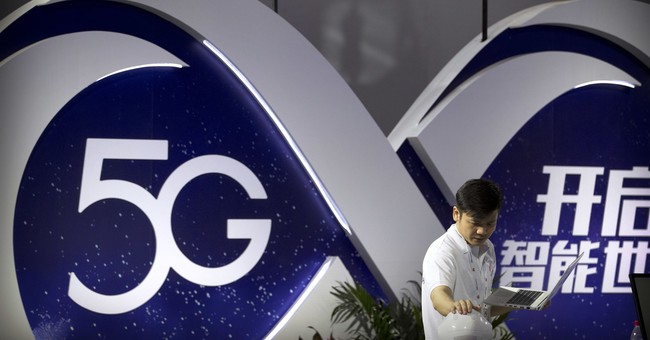
In Washington, bad ideas are like bad pennies: They keep turning up.
In early 2019 a group of well-connected Washington insiders was suggesting with the utmost sincerity that it would be best to have the Pentagon in charge of the push to 5G, the next-level communications network. The primary reason for this, they said, was national security and the threat posed by China.
President Donald J. Trump, a man who is in no way soft on China, wisely rejected their advice. In a Rose Garden press conference with Federal Communications Chairman Ajit Pai, he rejected the government-led approach, calling it “not as good, and not as fast.” Instead, he committed to a 5G buildout that would be “private sector driven, and private sector led,” ending talk of a nationalized network.
Or so we thought. The Wall Street Journal recently reported that the idea of a 5G network run out the Pentagon is once again on the table. A new proposal for a government-managed system under the supervision of a single company is once again under discussion. And, as before, the firm the DoD has in mind has little to no experience managing large information clusters.
The reason the idea’s come back has more to do with the swamp-dwellers who profit off big government contracts than with the science involved, the efficiency needed to bring 5G to life quickly, or the ability of firms in the private sector to make it all happen. It’s crony capitalism at its worst.
The best way to get to 5G is to allow the best minds and best engineers in the best firms to develop competing technologies – with the winner to be chosen in the marketplace. The plan being pushed yet again by the DoD gives one company – in this case, most likely Rivada Networks – control of the spectrum and its allocation as well as access to the protected intellectual property of those who’d be doing the job if the Pentagon had not taken the project over. At least that’s the opinion of 19 U.S. Senators who wrote the department complaining the way it wanted to move forward “contradicts the successful free-market strategy that has embraced 5G.”
Somehow what President Donald J. Trump likes to call “the race to 5G” is again in danger of being taken over by the officials in charge of it. Instead of fair competition, a vital future national and economic security project is being influenced unfairly by what leading congressional Democrats including House Energy and Commerce Committee Chairman Frank Pallone, D-N.J., say is a plan “specifically crafted to enrich President Trump’s cronies.”
Partisan hyperbole aside, it’s easy to see Pallone’s point. Building a national 5G network requires more than influential political connections. Rivada Networks, the company lobbying hardest to win the bid, is not exactly known for its ability to build out and manage broadband networks. Its proposal to manage FirstNet, a nationwide public safety broadband system, was shot down due to concerns at the Interior Department over concerns about the insecurity of its technology.
One might think this would give the Pentagon pause, yet Rivada’s advocates within the department say they are confident the company can get the job done and have an operating network functioning within three years. Of course these are some of the same people who have already spent more than a decade and hundreds of billions or more on the development of the new multi-service Joint Strike Fight and still haven’t gotten it right.
Chairman Pai, a national hero for his work preventing the Internet from coming under the thumb of the U.S. government as a regulated utility, has dismissed the effort to get to a nationalized 5G run by the Pentagon as being a costly and counterproductive distraction from what America ought to be doing. The federal government moves slowly by design. Processes that work quickly in an authoritarian country like China don’t work in America. Here, roadblocks and rulemaking are the order of the day. Washington can’t compete with the U.S. private sector. In Beijing, the private and public sectors are indistinguishable.
Thanks to President Trump, Chairman Pai, and others who understand the stakes, America is a lot farther down the road to a working 5G network than people might believe. Thanks to a competitive market where the nation’s three largest carriers have all prioritized building the nation’s biggest, fastest 5G network, we’ll get there faster and in better shape than if we let the government do it.